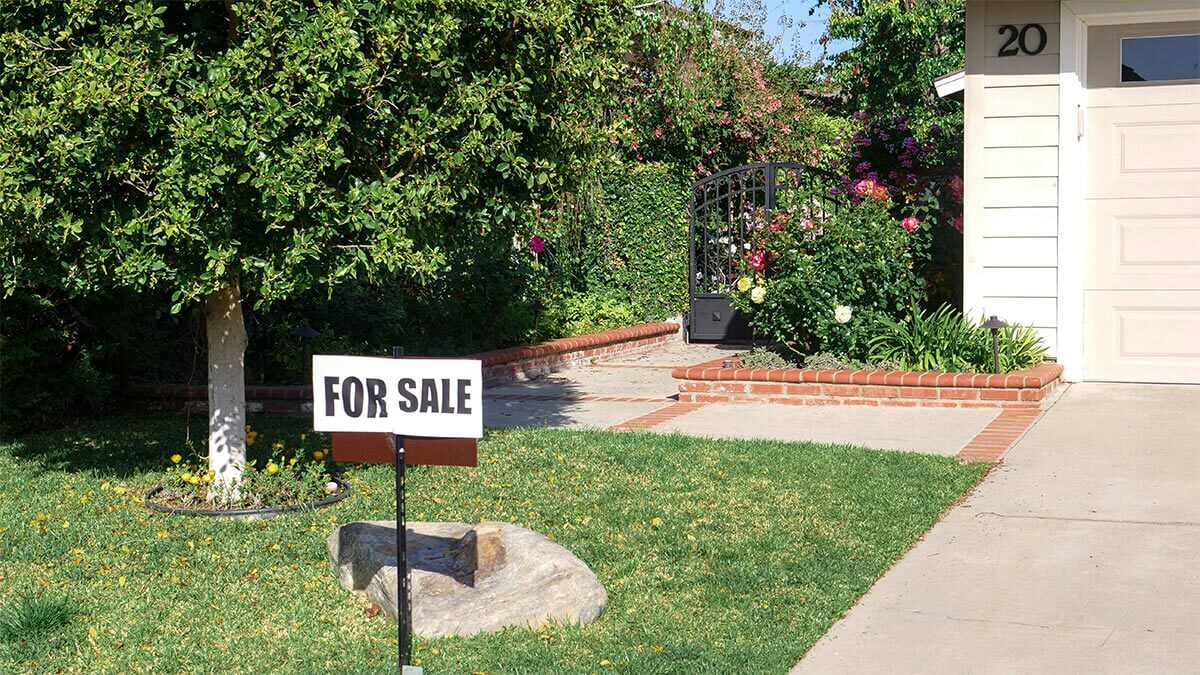Selling your home to an investor might seem like the easy way out. No cleaning. No repairs. Just cash in hand and done. But behind that quick sale, there’s a lot you should know. Some offers sound too good to be true, and sometimes, they are.
In this article, I’ll break down how selling to an investor really works, what’s good about it, what’s not, and how to tell if it’s the right choice for you. I’ll also share a few tips I’ve picked up from helping folks navigate this exact situation.
If you’re in a hurry to sell or just curious what an investor might offer, start with something solid. Get a fair, data-backed cash offer today at iBuyer.com.
Table of contents
- Why Homeowners Choose to Sell to an Investor
- How Selling to a Real Estate Investor Works
- Pros of Selling to a Cash Investor
- Cons of Selling to an Investor
- Reilly’s Two Cents
- Can You Get a Higher Price by Working With a Real Estate Agent?
- Is Selling to an Investor Right for You?
- So, Is an Investor the Right Buyer for Your Home?
- Frequently Asked Questions
Instant Valuation, Confidential Deals with a Certified iBuyer.com Specialist.
Sell Smart, Sell Fast, Get Sold. No Obligations.
Why Homeowners Choose to Sell to an Investor
Some folks just don’t have time to list their home and wait for the right buyer. Maybe the house needs a bunch of repairs. Maybe they’re moving fast for work or family. That’s when selling to an investor starts to sound pretty good.
Real estate investors are used to buying homes as-is. They don’t care if the carpet’s old or the paint is peeling. They’re looking for deals they can fix up or rent out. That means sellers can skip the open houses, the cleaning, and all the stress that comes with a regular sale.
For homeowners who want speed and don’t want to fix things up, this kind of sale can feel like a lifesaver.
How Selling to a Real Estate Investor Works
1. Finding the right buyer
Start by searching for local real estate investors or companies that buy homes. Look for reviews and check that they’re legit. A real buyer will explain things clearly and answer your questions, no pressure, no weird vibes.
2. Evaluating the investor’s offer
Once they see your home, they’ll make an offer. It might come fast, like, within a day or two. This price depends on your home’s condition and how much work they think it’ll need. Just remember, fast doesn’t always mean fair.
3. Confirming proof of funds
Before you say yes, ask for proof of funds. A real investor will have the money ready or show they can get it. If they dance around this step, that’s a red flag.
4. Navigating due diligence
This is when the investor double-checks everything: the home’s title, any repairs needed, and sometimes a quick inspection. It’s like homework before the sale. It shouldn’t take long, but it’s important.
5. Signing and closing
Once things check out, you’ll sign papers, and the sale moves to closing. This part can go fast, sometimes in a week or two. You’ll get your money, and the house changes hands.
Pros of Selling to a Cash Investor
You can sell your home as-is.
No need to fix that leaky faucet or paint the walls. Most investors are happy to take homes just the way they are, even if they need work.
Fast closings mean quicker cash.
Since investors don’t rely on loan approvals, the deal can close in days, not weeks or months. That’s a big win if you’re in a rush.
Fewer closing costs.
When you sell to an investor, you often skip the agent fees. Plus, some investors even cover part, or all, of the closing costs.
No showings or open houses.
Forget having to clean every day for strangers walking through your home. You only deal with one buyer, and that’s it.
Flexibility with your move-out date.
Investors can usually work around your schedule. Need a few extra days after closing to move out? Just ask. Many will say yes.
Cons of Selling to an Investor
You might get a lower offer.
Investors are looking to make a profit, so their offer might not match what you’d get from a traditional buyer. It’s often below market value.
Less room to negotiate.
Most investor offers are take-it-or-leave-it. If you’re hoping to haggle for a higher price, you might not get far.
Not all investors are trustworthy.
There are good ones out there, but also some shady folks. Watch out for buyers who rush you, avoid paperwork, or dodge your questions.
Scams can happen.
If something feels off, it probably is. Always ask for proof of funds and check if the investor is licensed or has a business record.
No emotional connection to your home.
Investors see homes as business deals, not memories. If that feels too impersonal, this route might not be for you.
Reilly’s Two Cents
I’ve helped folks sell homes that needed a lot of work or had to go fast, divorce, job moves, even sudden bills. In those moments, selling to an investor felt like the only real option. I get it. It’s not always about getting top dollar, it’s about moving on without a ton of stress.
If you’re thinking about going this route, here’s my advice:
Always ask for proof of funds. If a buyer can’t show you the money, don’t waste your time.
Get more than one offer. Even if it’s just for peace of mind, comparing options helps you spot lowball deals.
Don’t skip reading the contract. I know it’s boring, but the fine print is where surprises hide.
And most important, ask yourself why you’re selling. If it’s just for speed, that’s fine. But if you have time, at least explore your other choices.
Can You Get a Higher Price by Working With a Real Estate Agent?
The short answer? Probably, yes. Agents help you list your home to regular buyers, people looking for a place to live, not flip. Those buyers are often willing to pay more, especially if your home’s in good shape.
But there’s a trade-off. Listing a home takes more time. You might need to clean, do small repairs, or even stage the place. Plus, showings and open houses can stretch out the process. And don’t forget, agents charge a fee, usually around 5–6%.
Here’s a quick comparison to help you decide:
| Selling to Investor | Selling with an Agent |
| Fast closing (7–14 days) | Slower (30–60+ days) |
| Lower offer | Higher potential sale price |
| No repairs or cleaning | May need updates or staging |
| No agent fees (usually) | 5–6% agent commission |
| Simple paperwork | More steps and disclosures |
Some sellers even try both, get a few investor offers while also talking to an agent. That way, you have a backup plan and real numbers to compare.
Is Selling to an Investor Right for You?
Every seller’s situation is different. There’s no one-size-fits-all answer. But here’s a simple way to figure it out: ask yourself a few honest questions.
Are you in a hurry?
If you need to move fast, maybe because of a new job or personal reasons, an investor can close quickly and take that stress off your plate.
Does your home need a lot of work?
If you don’t have the time or money for repairs, selling as-is to an investor might be the easiest option.
Are you okay with a lower price for more convenience?
Investors usually offer less than a regular buyer, but the trade-off is speed and no hassle. Sometimes that’s worth it.
Are you worried about the sale falling through?
Investor deals rarely fall apart because there’s no loan involved. That can be a big plus if you just want it done.
Would working with a real estate agent get you more?
If your home’s in good shape and you’re not in a rush, listing with an agent could mean more money in your pocket.
Make a checklist. Think about your timeline, your home’s condition, and what matters most to you, speed, price, or peace of mind.
So, Is an Investor the Right Buyer for Your Home?
Selling to an investor isn’t for everyone, but it might be perfect for you. It’s fast, simple, and skips a lot of the usual drama. But you might leave some money on the table, and not every investor has your best interests in mind.
Take your time. Look at all your options. If an investor offer feels right, great. If not, that’s okay too. What matters is doing what’s best for you and your situation.
Want a fair, no-pressure cash offer you can trust? Head over to iBuyer.com and get started today, backed by real data, no guesswork.
Compare Cash Offers from Top Home Buyers. Delivered by Your Local iBuyer Certified Specialist.
One Expert, Multiple Offers, No Obligation.
Frequently Asked Questions
Usually not. Most investors aim to buy below market value so they can make a profit. But a strong property in a hot market might get you close.
Often, yes. Regular buyers may pay more, especially if they’re emotionally attached or competing with others.
Ask for proof of funds, look for online reviews, and don’t be afraid to ask questions. A real investor won’t pressure you or avoid paperwork.
Sometimes. Some investors stick to firm offers, but others might negotiate, especially if you have another offer in hand.
It’s usually simpler than a traditional sale. You’ll still need your ID, the deed, and a signed purchase agreement, but fewer forms overall.
Reilly Dzurick is a seasoned real estate agent at Get Land Florida, bringing over six years of industry experience to the vibrant Vero Beach market. She is known for her deep understanding of local real estate trends and her dedication to helping clients find their dream properties. Reilly’s journey in real estate is complemented by her academic background in Public Relations, Advertising, and Applied Communication from the University of North Florida.




